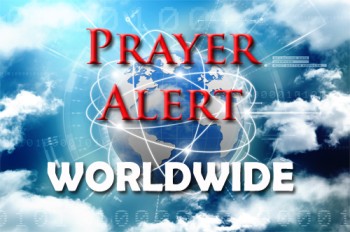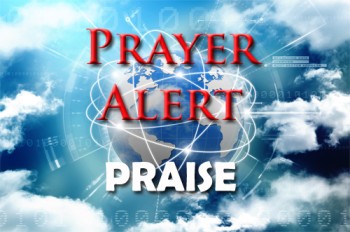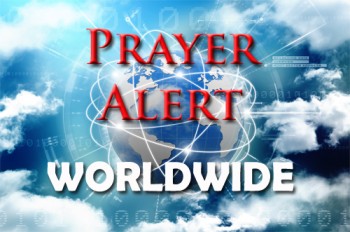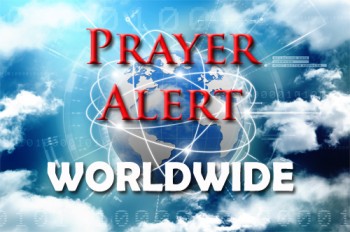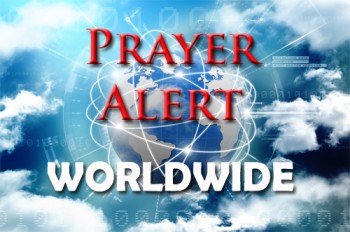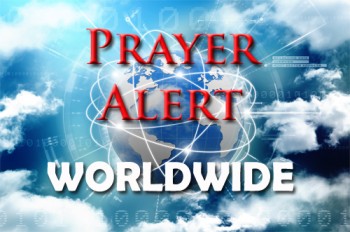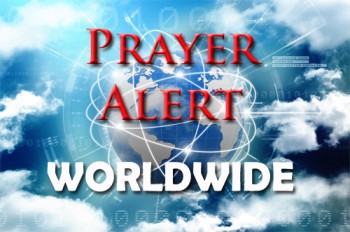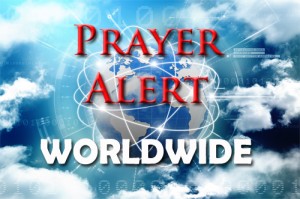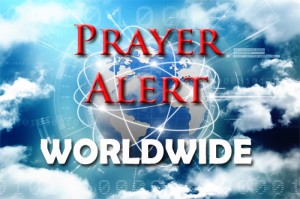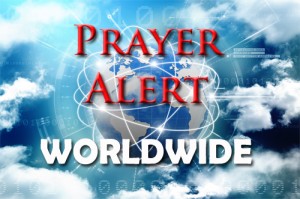Displaying items by tag: Ebola
Uganda: vaccine trial against Ebola
Uganda, in partnership with the WHO and other health organisations, has launched its first-ever vaccine trial for the Sudan strain of Ebola. The trial began just days after a nurse succumbed to the virus, with additional cases confirmed among his relatives. Researchers at Makerere University and the Uganda Virus Research Institute expedited the process, ensuring compliance with ethical and regulatory standards. The candidate vaccine, donated by IAVI and funded by international partners, aims to improve pandemic preparedness. Over 2,000 doses are available, though the manufacturer remains undisclosed. Uganda has a history of Ebola outbreaks, including a deadly 2000 epidemic. Contact tracing remains essential in containing the disease. This outbreak comes amid US funding freezes following the Trump administration’s withdrawal from the WHO. The region has also faced recent outbreaks of Marburg virus in Tanzania and Rwanda. Officials hope the vaccine will be a breakthrough in combating future Ebola epidemics.
PPE welcomed by Tanzanian health minister
A huge consignment of life-saving personal protective equipment (PPE), shipped to Tanzania through medical.gives, is being deployed to protect health workers from a deadly new Ebola threat. The consignment was welcomed by health minister Ummy Mwalimu and presented by Mags Gaynor, a representative of the Irish government, which donated the equipment. The handover came days after Tanzania was put on alert and health surveillance was stepped up when neighbouring Uganda confirmed 35 infections and seven deaths from a strain of Ebola for which there is no vaccine or drug treatment. Medical masks, gloves, scrubs and other items are being issued to health staff working in areas of Tanzania deemed at the highest risk of an Ebola outbreak. PPE is also being issued to staff helping to combat Covid-19. Fifty million PPE pieces, worth £25 million, have been donated to Christian hospitals in east and southern Africa by the Irish government.
DRC, Guinea: Ebola resurgence
The ministry of health declared an Ebola epidemic in the N’Zerekore region of Guinea on 14 February, following seven confirmed cases and three deaths. US government agencies are closely monitoring the epidemic, and coordinating with the Guinea government, the World Health Organisation, and other partners to provide rapid, localised outbreak control. This outbreak follows a declaration of an outbreak on 7 February by the DRC’s minister of health. The previous West African outbreak in 2014-16 killed over 11,300. The source of infection is under investigation. It is important to monitor one’s health for 21 days after travelling to an area experiencing an Ebola outbreak.
DRC: Justin Welby visits Ebola zone
The Archbishop of Canterbury has visited areas affected by the Ebola crisis in the DRC, which surfaced in August 2018 and has killed 2,169 people so far. Following strict anti-contamination procedures he toured hospitals transformed into Ebola treatment facilities with quarantine units, screening centres, and blood-testing tents set up to combat the disease. The archbishop flew to Ebola-affected cities with Mission Aviation Fellowship (MAF). They fly in the most difficult places in the world, landing on the most challenging runways but with the highest safety standards. MAF said the situation is complex, with the threat of violence now increasing. Flying is a safe and trusted way to deliver blood samples, vaccines, scrubs, gloves and oxygen tanks to those working to combat the virus.
Uganda: Ebola in frightening phase
The Ebola outbreak in the Democratic Republic of Congo made the long-feared jump across borders with three cases confirmed in Uganda, including the death of a five-year-old boy. Concern has been mounting that this would happen, underscored by an increase in the number of cases in recent weeks. The World Health Organisation and Ugandan health authorities said the Congolese boy had travelled to Uganda with his family. The other two confirmed cases are the boy's three-year-old brother and his grandmother, 50. They are in isolation at a Ugandan Ebola treatment unit. Eight people who had been in contact with the family are being traced. The Congo outbreak is the second largest and second deadliest in history. The Wellcome Trust said, ’This epidemic is in a truly frightening phase and shows no sign of stopping any time soon.’ WHO is expected to come under pressure to declare an international health emergency.
DRC: 1,000+ Ebola cases
A quarter of people interviewed in eastern DR Congo believe Ebola is not real, underscoring the enormous challenges that healthcare workers are facing as the epidemic exceeds 1,000 cases. Public mistrust is not helping; people refuse vaccines, resist treatment and conceal symptoms. Even though health workers are better prepared than ever, with new technologies, trial treatments, and futuristic mobile treatment units, they are not curbing the spread of the virus. Five Ebola centres have been attacked since last month, sometimes by armed assailants. The violence led French medical charity Médecins Sans Frontières (MSF) to suspend activities at the epicentre of the outbreak. Now Bunia city, with 1 million people, has confirmed a case. Pray for the health ministry and partners as they listen to the affected communities, address their concerns, and quell misinformation and mistrust; and for the military to strengthen defences against attacks on health centres. See https://qz.com/africa/1582080/ebola-in-dr-congo-tops-1000-cases-struggles-to-contain-spread/
Democratic Republic of the Congo: Ebola outbreak
The second-largest Ebola outbreak in history has killed 97 children, and 811 people have symptoms. ‘We are at a crossroads’, said a spokesperson for Save the Children. ‘If we don't take urgent steps to contain this, the outbreak might last another six months, if not the whole year.’ The fatality rate is currently 63%. There is misinformation in communities, and mistrust of medical responses is an urgent and real concern. People have disrupted funerals because they didn't believe the deceased had the virus. Aid workers are threatened because it is believed that they spread Ebola. ‘We must scale up our efforts to reach the vocal youth and community leaders to build trust and to help us turn this tide. Treating sick people is essential, but stopping Ebola from spreading is just as important.’ Children are at the greatest risk of dying.
Congo: Ebola crisis, rumours, violence
Ebola relief efforts by Doctors Without Borders are being hindered by violence and rumours. The outbreak began when a family, fearful of treatment centres, fled authorities to visit traditional healers. Healers keep few records of their patients, making it difficult to trace and break the chains of transmission. Before national elections on 30 December, opposition politicians exploited the crisis by spreading rumours that Ebola has been concocted by the government to kill people’, claiming that ‘thermo-guns aimed at people’s foreheads to take temperatures are weapons to steal votes’. In Beni and Butembo, where Ebola is worsening, and in Yumbi, where hundreds have been killed in ethnic Mai-Mai violence, people were not allowed to travel to polling stations to vote (see http://www.africanews.com/2018/12/26/drc-polls-ceni-says-no-election-in-beni-butembo-and-yumbi-cities-until-march/). Civilians don’t know who to trust, and fend off all outsiders. When police tried taking an infected baby to doctors, his grandmother threatened them with a machete. On 1 January volunteers from Samaritan’s Purse arrived in the region to help those who are fighting for their lives. Hundreds are already dead. See https://calgaryherald.com/news/local-news/samaritans-purse-sends-team-to-congo-to-help-fight-ebola-outbreak
DRC: Ebola and militia skirmishes
It is the worst Ebola outbreak to have struck the Democratic Republic of Congo (DRC) - and the most complex one. Since August the authorities, together with a host of partners, have been trying to contain the disease in the eastern North Kivu and Ituri provinces. By 21 November, there were 373 suspected Ebola cases, 347 confirmed cases, and 217+ deaths. There is still no cure, but it is hoped that a vaccination programme will be the next step towards a more effective management of future outbreaks.Controlling Ebola is dangerous and difficult because of violent attacks in the DRC by ADF militia. On 24 November clashes broke out ‘a few metres’ from a local emergency centre and the hotels of several response teams. On the same day WHO said 16 staff members had been temporarily evacuated for psychological care, after a shell hit the building they were staying in. UN peacekeepers repelled the offensive: see
Democratic Republic of Congo: UN concern before December elections
The UN has raised the alarm over fighting in eastern DRC, warning that the violence could hamper next month's elections. Leila Zerrougui, a UN special representative, said that three provinces were most at risk. ‘There is a potential for armed group interference in the elections’, she said at a UN security council meeting. The area has been troubled for decades by inter-ethnic bloodshed and militia violence, a crisis that has escalated this year. DRC is also battling the worst Ebola outbreak in its history. These factors cast a shadow over the country's ability to stage elections on 23 December to succeed President Joseph Kabila.
